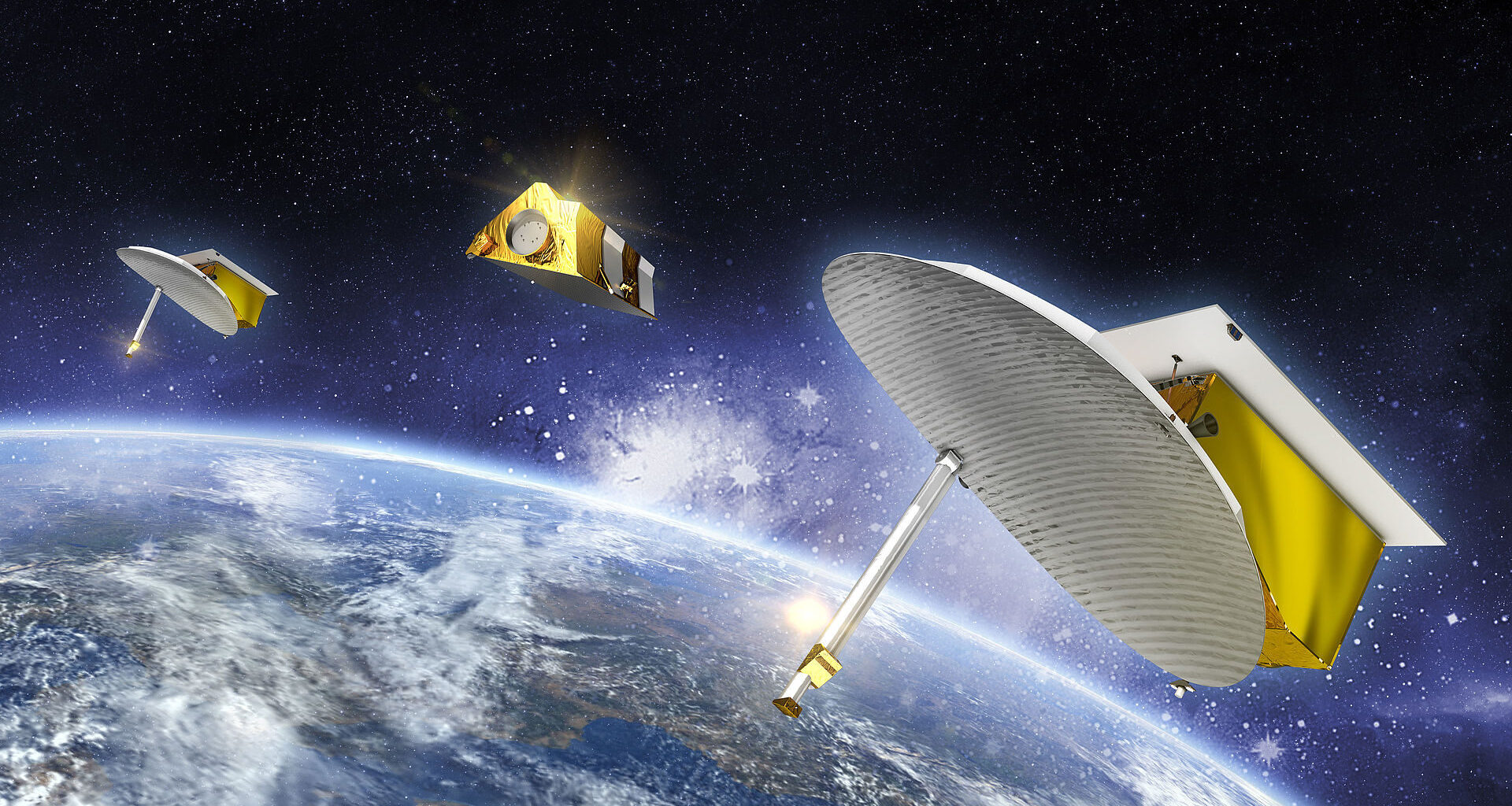WASHINGTON — German Defense Minister Boris Pistorius today announced that Berlin will invest €35 billion ($41 billion) over the next five years on space security, including improved cybersecurity.
“[W]e are building structures within the Bundeswehr to enable us to effectively defend and deter in space in the medium and long term,” he told the Federation of German Industries’ annual Space Congress in Berlin, according to an online translation of an MoD press release.
“We plan to acquire new satellite constellations — for early warning, reconnaissance, and communications. We will also utilize dual-use systems, meaning technologies that can be deployed for both civilian and military purposes,” Pistorius added.
That plan, according to the release, includes spending on:
hardening systems against disruptions and attacks
improved situational awareness through radars, telescopes and the future use of sentinel satellites
the creation of redundancies through several networked satellite constellations
secured, also on-demand available, transport capacities into space
a dedicated military satellite operations center in the Bundeswehr Space Command
Pistorius specifically called out the need for improved cybersecurity for “all space systems” — and back in May Maj. Gen. Michael Traut, commander of German Space Command, said “self-protection measures [or] built-in self-protection” for satellites was on his “Christmas list.”
As for the motivating factor, Pistorius cited increasing threats to Western space assets from Russia and China as the impetus for the new spending plan.
“Satellite networks today are an Achilles’ heel of modern societies. Whoever attacks them paralyzes entire nations,” Pistorius said.
For example, he noted the February 2023 Russian cyberattack on Viasat’s communication satellite network in the run up to the invasion of Ukraine that also shut down German wind turbines, according to a report in Defense News.
Pistorius also alleged that Russian Luch/Olymp satellites have been shadowing two communications satellites operated by US firm Intelsat that are used by the Bundeswehr.
The Luch/Olymp birds, characterized by Moscow as “inspector satellites,” have been making close passes around a number of US and Western nation satellites in geosynchronous Earth orbit since at least 2015.
The MoD is reaching out to German and European industry for assistance in making its space plans a reality, Pistorius stressed.
He explained that Berlin wants to “promote innovations from small and medium-sized enterprises in the future in a non-bureaucratic and early stage — and use larger companies as system integrators to integrate small businesses and startups,” according to the MoD press release.
Europe’s major launch company, Arianespace, announced today that it has been awarded a contract by the Bundeswehr to launch two SATCOMBw Stufe 3 satellites on heavy-lift Ariane 6 rockets. The new satellites are to replace the COMSATBw 1 and 2 military communications birds.
At the same time, Pitorius said, MoD is “also currently looking at market-available solutions. Specifically where this technological shortcut makes sense.”
While the company didn’t cite the specific agency involved due to security concerns, Planet Labs Germany GmbH, the American firm’s European headquarters, announced on July 1 that it had received a “multi-year €240 million agreement, funded by the German government, in support of European peace and security” for “high-resolution imagery and timely intelligence.”
Today in Berlin, the company announced plans “to begin production of next-generation, high-resolution Pelican satellites in Germany” under a deal “expected to exceed 8 figures” in capital investment.
Caleb Henry, director of research at Quilty Space, told Breaking Defense that one big winner from the MoD’s plan will be OHB, headquartered in Bremen, which Henry described as Germany’s “biggest space prime.”
OHB operates five aging SAR-Lupe synthetic aperture radar satellites that provide intelligence, surveillance and reconnaissance to the German military. In 2023, the company launched two replacements, called SARah, but were moribund until a recovery maneuver to deploy their jammed antennas this spring brought them into service, according to a May 27 report by market analysis firm Seradata.
Henry said he would also “be watching to see if this proposal has any impact on Germany’s emerging launch providers, notably Isar Aerospace and RFA.”
“Germany has discussed its own MEO [medium Earth orbit] constellation as well, which would be a notable investment in sovereign space systems,” Henry added.
He noted that the move may be the start of a trend away from France being the only big player in European space.
“What’s interesting to me is that for a long time, when looking at where Europe, if you kind of ask the the old Henry Kissinger question, ‘when I call Europe, who do I call?’ for the space industry that has always been France. But in recent years, we’ve started to see more of a pendulum swing towards Germany,” he said.
“And so to me, it’s the culmination of a … growing desire in Germany for greater space autonomy, and a willingness to pursue that, if necessary, on an independent basis,” Henry said.

